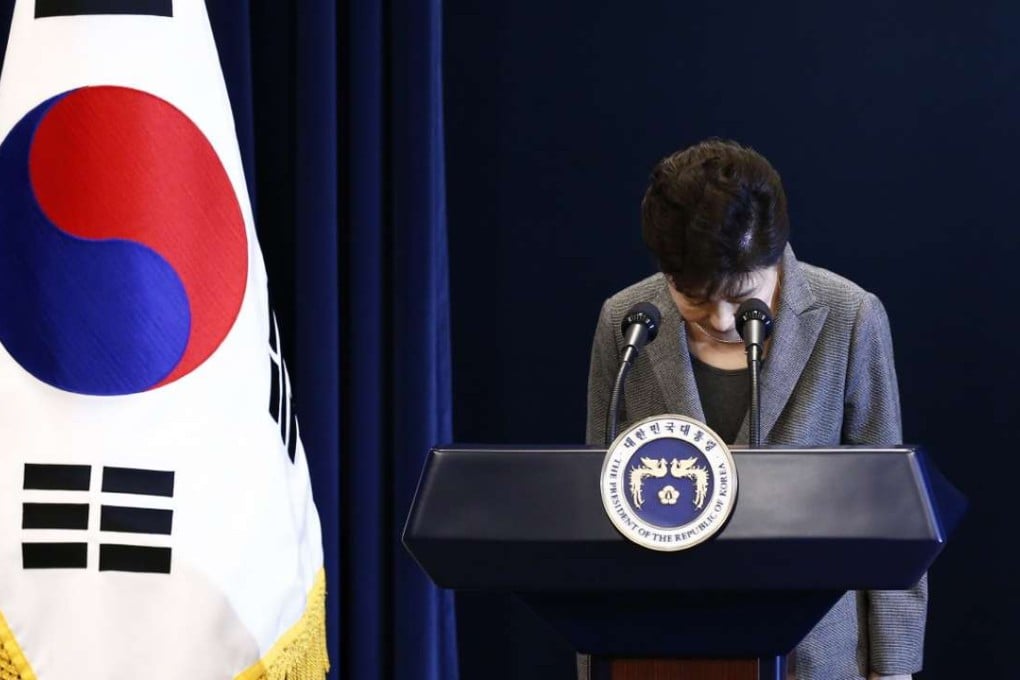The rise and fall of Park Geun-hye, Korea’s ‘Jackie Onassis’
Seoul’s first female president rode a wave of sympathy after the murder of her parents; with her removal from office, she ends public life in Nixon-like disgrace

Former South Korean president Park Geun-hye had long seemed destined for the history books, though Friday’s decision by the Constitutional Court to remove her from power will not have been the circumstances her supporters envisaged.
As the dust settles on Chief Justice Lee Jung-mi’s ruling that Park’s “unconstitutional and illegal actions” had “betrayed the people’s trust”, her supporters will be left to ponder how the bright politician who began her reign as the nation’s first female president in February 2013 could end it little more than four years later as the nation’s first president to be removed from office by impeachment.
The chaotic scenes that followed the ruling – at least two protesters have died in clashes between her supporters and opponents in central Seoul – were far from the ones of jubilation that accompanied her historic election.

What a nude painting of Park and an awkwardly placed THAAD missile says about Korean politics
Looking back, two factors that contributed greatly to her victory were nostalgia for her father, Park Chung-hee, whose brutal dictatorial rule nevertheless brought Korea unprecedented economic prosperity, and sympathy for Park herself, whose parents were both murdered when she was quite young. This perhaps granted her a place in the Korean imagination analogous to that of Jacqueline Kennedy Onassis.
